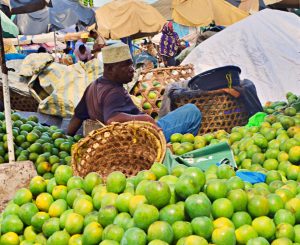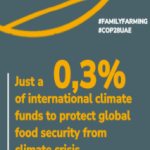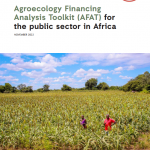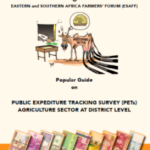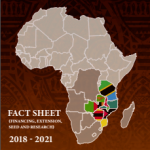How Arusha food traders coped with COVID-19 impacts
Arusha Smallholder vegetable farmers in Arusha were forced to turn to maize growing as demand fell at the height of Covid-19 fears. Although the situation was not equally rosy for the cereals, they had to contend with lower prices offered by the buyers. “I had to focus on maize cultivation. Maize market was not much affected that of vegetables”, said Damian Emmanuel, a farmer. He said although he used to grow vegetables and other crops on four acres, he was forced to reduce the farm size to only one acre. His remarks are contained in a survey by a regional agricultural lobby on how the pandemic has impacted smallholder farmers.
The Eastern and Southern Africa Small Scale Farmers’ Forum (ESAFF) commissioned the study for Tanzania, South Africa and Ghana. Mr. Emmanuel, a farmer-cum-food trader said smallholder horticultural producers around Arusha, were negatively impacted by Covid-19.
“our products are not only perishable but also suffered reduced orders from the hotels and eateries, he told Me Citizen
The situation, according to him was critical from March to May this year at the height of enforced travel restrictions. “other traders at Arusha food markets said although it was uncommon for tourists to make their purchases directly from there, their absence has been a blow.
“The fruits and vegetables are consumed in the hotels and lodges. Rice used to move fast but not these days, “pointed out Eric Simon. Vegetable sellers appear to feel the pinch more. Most of their fresh produce collected remain on the business stalls for hours.
“This place (market) used to be flooded with buyer’s year-long. Now you can see there are fewer buyers,” he said. Another farmer George Ole Muterian said the entire 2020 was a particularly bad year due to the falling price of farm produce.
The fruits and vegetables are consumed in the hotels and lodges. Rice used to move fast but not these days, pointed out Eric Simon. Vegetables sellers appear to feel the pinch more. Most of their fresh produce collected remain on the business stalls for hours. “this place (market) used to be flooded with buyer’s year-long. Now you can see there are fewer buyers” he said. Another farmer George ole Muterian said the entire 2020 was particularly bad year due to the falling price of farm produce.
According to him, one bag of maize used to sell at Sh65,000 but dropped to more than half that amount. There was no option but to continue trading maize and other crops so as to earn a living and contain the cash crunch, he said
Another trader Ndavukaye Christopher said the drop in price of maize and other fresh produce was preceded by hiked prices of the farm inputs. “but we had no option but to stick to food trade I order to generate an income for our families. There was no option she said.
The Morogoro-based ESAFF says it will use findings of the study in order to know how small food traders addressed the COVID-19 crisis. The East African Business Council (EABC) recently cited horticulture as having been much impacted by the pandemic.
For some months after the first cases were reported in the region, flower vegetables and fruits from the region could not access international markets due to travel restrictions
This extended to disruption of food production and supply, distribution as well as restrictions of imports and exports
Eastern and Southern Africa Small Scale Farmers Forum (ESAFF) is conducting a study that is funded by international Development Research Centre ( IDRC) with and other organisations inluding, university of Western Cape (RSA) and Ardhi University and EMEDO. The major aim I to gather data on the impacts of Covid-19 regulatory and support interventions on the functioning and structure of food systems in Tanzania, Ghana and South Africa. The objective is to catalyse and inform political and policy action, among key state and non-state political and social actors, to enhance food system resilience, food security and equity. Evidence and its dissemination will guide short and long-term interventions focused on achieving the right to food, improved livelihoods within food systems and increased voice and agency for women, the economically marginalised and the systematically impoverished
Story by: Zephania Ubwani (The Citizen)

















